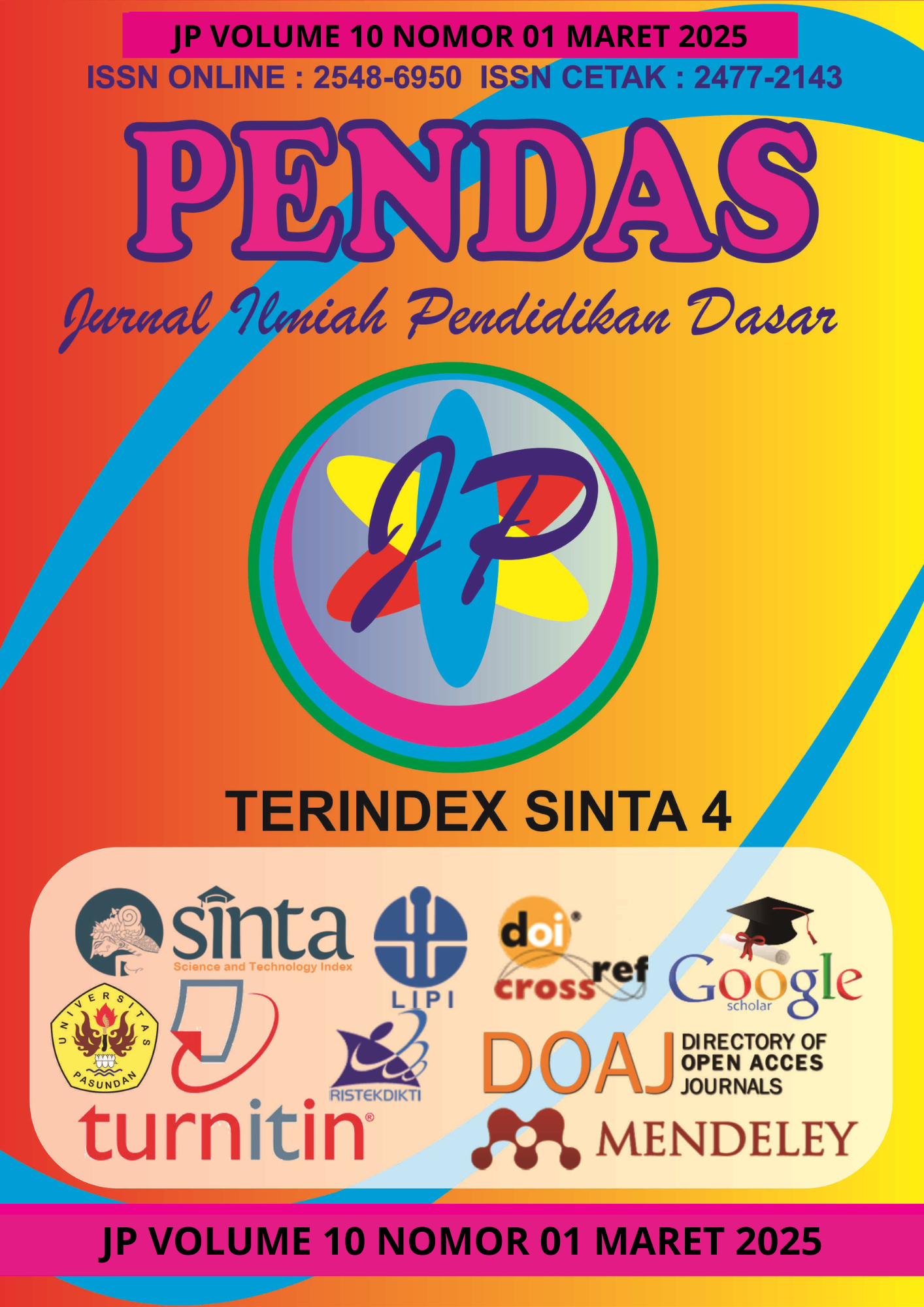PROSEDUR PENGEMBANGAN BAHAN AJAR PENDIDIKAN AGAMA ISLAM (PAI)
DOI:
https://doi.org/10.23969/jp.v10i01.22429Keywords:
teaching material development, PAI, proceduresAbstract
This article aims to discuss the procedures for developing PAI teaching materials. The literature review research method was used to understand key concepts and best practices in developing PAI teaching materials. The main data sources include literature from the fields of Islamic Religious Education and educational psychology, as well as the views of educational practitioners involved in the development process. Data collection techniques include searching, selecting and analyzing relevant literature to formulate a comprehensive framework for compiling effective PAI teaching materials. The results of the systematic and comprehensive development of Islamic Religious Education (PAI) teaching materials show a significant increase in students' motivation and understanding of the material. The discussion in this article highlights that teaching materials that are designed in an attractive and easy to understand manner can facilitate a more effective learning process. It was also stated that the stages of needs analysis, design, development, implementation and evaluation are a systematic approach that is crucial in creating responsive and relevant teaching materials. The importance of understanding the local context and characteristics of students is emphasized as an essential factor in ensuring the success of developing teaching materials. Continuous evaluation of the teaching materials that have been developed is necessary for adaptation and quality improvement according to practical feedback. In conclusion, the development of effective PAI teaching materials not only supports students' learning needs but also strengthens teachers' capacity to deliver the material efficiently.
Downloads
References
Botifar, Maria, Endry Boeriswati, and Ilza Mayuni. “Analisis Kebutuhan Guru Dan Siswa terhadap Pengajaran Bahasa Rejang sebagai Muatan Lokal di Sekolah Dasar.” Preprint. Open Science Framework, August 28, 2019.
https://doi.org/10.31219/osf.io/9 dvq8.
———. “Analisis Kebutuhan Guru Dan Siswa terhadap Pengajaran Bahasa Rejang sebagai Muatan Lokal di Sekolah Dasar.” Preprint. Open Science Framework, August 28, 2019. https://doi.org/10.31219/osf.io/9 dvq8.
Fauzan, Fauzan, Ayup Lateh, and Fatkhul Arifin. “Analisis Kurikulum Pendidikan Agama Islam di Indonesia dan Thailand (Studi kebijakan Kurikulum 2013 dan Kurikulum 2008 di tingkat SMA).” Edukasia : Jurnal Penelitian Pendidikan Islam 14, no. 2 (December 15, 2019): 297. https://doi.org/10.21043/edukasi a.v14i2.5989.
Fathoni, Tamrin. “Pengaruh Tingkat Pendidikan Agama Islam Orang Tua Terhadap Karakter Religius Peserta Didik.” MENTARI: Jurnal Pendidikan Anak Usia Dini 1, no. 1 (2021).
Fitri, Hafizah Rahmi, and Fatni Mufit. “VALIDITAS DAN PRAKTIKALITAS BAHAN AJAR FISIKA MATERI KALOR DAN TEORI KINETIK GAS MENGINTEGRASIKAN LITERASI BARU DAN LITERASI
BENCANA UNTUK KELAS XI SMA,” n.d.
Hafizah, Yuli, and Renol Afrizon. “ANALISIS VALIDITAS BAHAN AJAR BERMUATAN LITERASI SAINTIFIK PADA MATERI KALOR DAN TEORI KINETIK GAS,” n.d.
Mahmudin, Afif Syaiful. “PENGEMBANGAN BAHAN AJAR MATA PELAJARAN PENDIDIKAN AGAMA ISLAM OLEH GURU TINGKAT SEKOLAH DASAR.” SITTAH:
Journal of Primary Education 2, no. 2 (October 30, 2021): 95–
106.
https://doi.org/10.30762/sittah.v 2i2.3396.
Munadi, Sudji. “PENILAIAN HASIL BELAJAR,” n.d.
Sari, I A, I R W Atmojo, and D Y Saputri. “Analisis kebutuhan bagi guru dalam proses pelaksanaan pembelajaran daring selama pandemi di sekolah dasar,” n.d.
Siswanto, Siswanto. “VALIDITAS SEBAGAI ALAT PENENTUAN KEHANDALAN TES HASIL
BELAJAR.” Jurnal Pendidikan Akuntansi Indonesia 6, no. 1
(April 14, 2014).
https://doi.org/10.21831/jpai.v6i 1.1795.
———. “VALIDITAS SEBAGAI ALAT PENENTUAN KEHANDALAN TES HASIL BELAJAR.” Jurnal
Pendidikan Akuntansi Indonesia 6, no. 1 (April 14, 2014).
https://doi.org/10.21831/jpai.v6i 1.1795.
Suprihatin, Siti, and Yuni Mariani Manik. “GURU MENGINOVASI BAHAN AJAR SEBAGAI LANGKAH UNTUK
MENINGKATKAN HASIL BELAJAR SISWA.” PROMOSI
(Jurnal Pendidikan Ekonomi) 8, no. 1 (June 19, 2020).
https://doi.org/10.24127/pro.v8i1
.2868.
Warsito, Sumber, and Sugito Adi. “Pembelajaran 9. TUJUAN PEMBELAJARAN,” n.d.
Downloads
Published
Issue
Section
License
Copyright (c) 2025 Pendas : Jurnal Ilmiah Pendidikan Dasar

This work is licensed under a Creative Commons Attribution 4.0 International License.














































